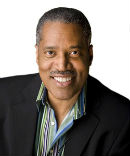At the National Association for the Advancement of Colored People’s annual convention in Detroit, delegates unanimously recommended that the House of Representatives impeach President Donald Trump. For what?
Derrick Johnson, the NAACP’s president, said: “The pattern of Trump’s misconduct is unmistakable and has proven time and time again that he is unfit to serve as the president of this country. … This president has led one of the most racist and xenophobic administrations since the Jim Crow era.” Rep. Al Green, D-Texas, who introduced an unsuccessful motion for impeachment, argues that the President’s “racist comments” constitute sufficient grounds for impeachment.
Just how much harm has “racist” Trump done to blacks?
President Barack Obama presided over the worst economic recovery since 1949. As to black unemployment, then-chairman of the Congressional Black Caucus Rep. Emanuel Cleaver, D-Mo., said in 2011: “As the chair of the Black Caucus, I’ve got to tell you, we are always hesitant to criticize the president (Obama). With 14% (black) unemployment, if we had a white president we’d be marching around the White House.” That same year, at a jobs forum in Detroit, Rep. Maxine Waters, D-Calif., said: “We’re supportive of the President, but we getting tired, y’all. Getting tired.” Rep. Jesse Jackson Jr., D-Ill., said, “President Obama got 96 percent of (the black) vote but he isn’t dealing with our biggest problem — unemployment — which is more than twice that of whites.”
In August 2012, the Associated Press reported: “Since World War II, 10 U.S. recessions have been followed by a recovery that lasted at least three years. An Associated Press analysis shows that by just about any measure, the one that began in June 2009 is the weakest. … Economic growth has never been weaker in a postwar recovery. Consumer spending has never been so slack. Only once has job growth been slower. More than in any other post-World War II recovery, people who have jobs are hurting: Their paychecks have fallen behind inflation.”
In January 2016, black liberal commentator Tavis Smiley said: “Sadly, and it pains me to say this, over the last decade, black folk, in the era of Obama, have lost ground in every major economic category. Not one, two or three (categories), but every major economic category, black Americans have lost ground.” Under Trump, black unemployment is near historical lows. Robert Johnson founded Black Entertainment Television, became America’s first black billionaire and supported Hillary Clinton in the 2016 election. Johnson recently said: “I think the economy is doing absolutely great, and it’s particularly reaching into populations that heretofore had very bad problems in terms of jobs, unemployment and the opportunities that come with full employment, so African American unemployment is at its lowest level. I give the president a lot of credit for moving the economy in a positive direction that’s benefiting a large amount of Americans.”
The “racist” Trump also wants to do something about illegal immigration, the downside of which is virtually ignored by Democratic politicians, including black politicians. About the impact of unskilled illegal immigration, Harvard economist George Borjas wrote in 2016: “Both low- and high-skilled natives are affected by the influx of immigrants. But because a disproportionate percentage of immigrants have few skills, it is low-skilled American workers, including many blacks and Hispanics, who have suffered most from this wage dip. The monetary loss is sizable. The typical high school dropout earns about $25,000 annually. According to census data, immigrants admitted in the past two decades lacking a high school diploma have increased the size of the low-skilled workforce by roughly 25%. As a result, the earnings of this particularly vulnerable group dropped by between $800 and $1,500 each year.”
Enter President Trump, who pursues pro-growth policies. He cut personal and corporate income tax rates, reduced regulations and halted the march toward “Medicare for All.” Black unemployment fell. Income is growing, and the unemployment gap between whites and blacks is narrowing. About the black-white gap, Bloomberg wrote in August 2018, “In the three months through July, the gap between the black and white employment-to-population rates averaged 4.3 percentage points, the smallest since 1979.”
Then there’s education. Many urban high schools suffer dropout rates of nearly 50%, and many of those who do graduate cannot read, write or compute at grade level. President Trump supports education vouchers that, according to polls, urban black and brown parents want for their children. What’s more important than jobs and quality education?
By focusing on racism even as it declines as a factor in American life, the NAACP demonstrates its continued irrelevance. The No. 1 problem facing the black community is not racism, “voter suppression,” the need for reparations or alleged police “institutional racism.” It is the absence of fathers, a condition aided and abetted by a welfare state that incentivizes women to marry the government and allows men to abandon their financial and moral responsibilities.
COPYRIGHT 2019 LAURENCE A. ELDER
DISTRIBUTED BY CREATORS.COM
Photo credit: Disney/ABC (Creative Commons)
 Larry Elder is a bestselling author and radio talk-show host. To find out more about Larry Elder, or become an “Elderado,” visit www.LarryElder.com. Follow Larry on Twitter @larryelder.
Larry Elder is a bestselling author and radio talk-show host. To find out more about Larry Elder, or become an “Elderado,” visit www.LarryElder.com. Follow Larry on Twitter @larryelder.
The views expressed in opinion articles are solely those of the author and are not necessarily either shared or endorsed by Black Community News.
 CURE News and Clergy Blog News and Commentary for Christians
CURE News and Clergy Blog News and Commentary for Christians



